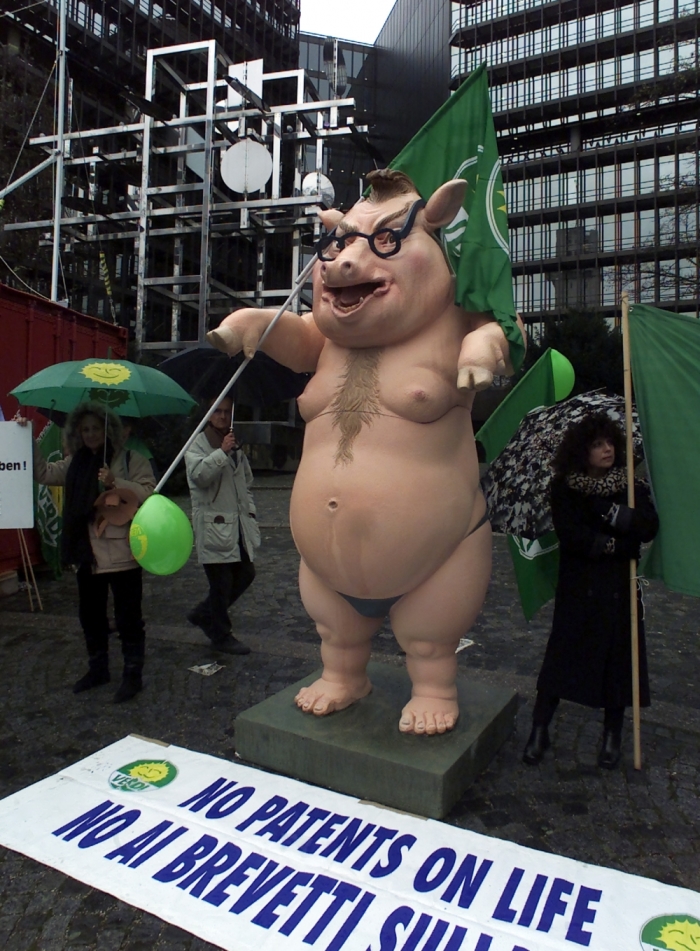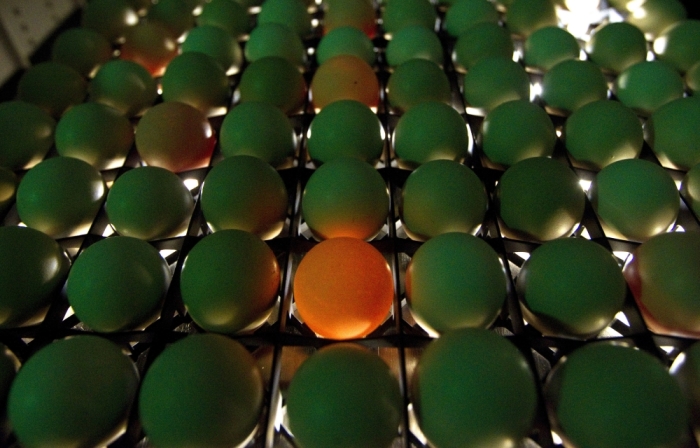Scientists Creating Human-Animal Embryos Raises Ethical Concerns

Some scientists in the United States are working to make embryos that are part human, part animal in an attempt to save the lives of people suffering from various diseases. But other scientists warn that such experiments could damage people's sense of humanity, NPR reports.
Such embryos are called "chimeras," named after creatures from Greek mythology and which are created artificially by combining genetic material from different species into a single embryo. The adult animals that develop as a result have different populations of cells that reflect different contributions from the species from which they were produced.
"We're not trying to make a chimera just because we want to see some kind of monstrous creature," NPR quotes Pablo Ross, a reproductive biologist at the University of California, Davis, as saying. "We're doing this for a biomedical purpose."
Other doctors working on chimeras with Ross are from the Salk Intitute for Biological Studies in La Jolla, California, and Stanford University. Scientists from the University of Minnesota are conducting similar work. The research is partially funded by the Defense Department and the California Institute for Regenerative Medicine.

Partially human hybrid embryos are created by fusing human cells and animal eggs, and partially human chimeric embryos are created by injecting human embryonic stem cells into animal embryos, according to the California-based group, Center for Genetics and Society. "Most scientists want to produce such embryos only for research, and oppose experiments that would allow human-animal chimeras to be brought to term," it adds.
"You're getting into unsettling ground that I think is damaging to our sense of humanity," Stuart Newman, a professor of cell biology and anatomy at the New York Medical College, is quoted as saying.
The National Institutes of Health has imposed a moratorium on funding the scientists who are working to create part human, part animal embryos, and officials are looking at the ethical issues they raise, NPR says.
"The prospect of human-animal chimeras troubles many people and raises troubling questions about their moral and legal status," acknowledges the group. "Would a human-animal chimera have human rights? Could it be patented and owned? What if it were 99.9 percent human and 0.1 percent chimpanzee? What of the reverse situation?"
Ross and other scientists conducting the experiments on pigs to make chimeras are not certain about the outcome.
"If you have pigs with partly human brains you would have animals that might actually have consciousness like a human," Newman says. "It might have human-type needs. We don't really know."
He adds, "If a male chimeric pig mated with a female chimeric pig, the result could be a human fetus developing in the uterus of that female chimera." Newman says.
The animals might also give birth to some kind of part-human, part-pig creature.
Jason Robert, a bioethicist at Arizona State University, adds: "One of the concerns that a lot of people have is that there's something sacrosanct about what it means to be human expressed in our DNA. And that by inserting that into other animals and giving those other animals potentially some of the capacities of humans that this could be a kind of violation — a kind of, maybe, even a playing God."
Ross disagrees, saying, "We're just trying to use the technologies that we have developed to improve peoples' life."




























